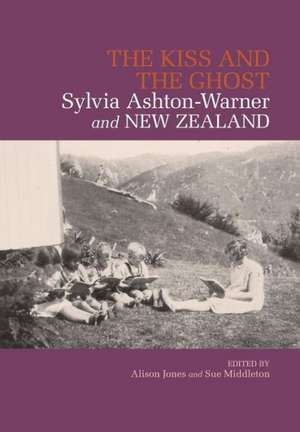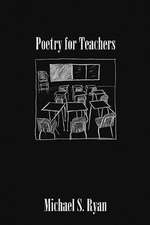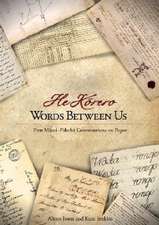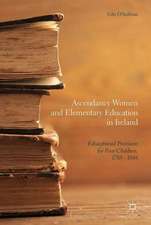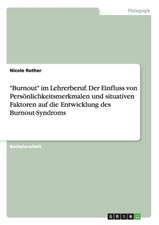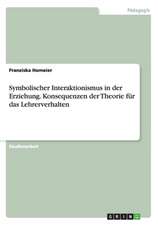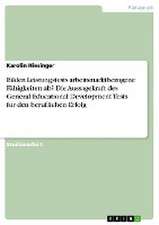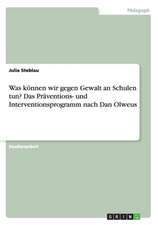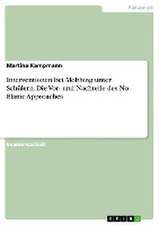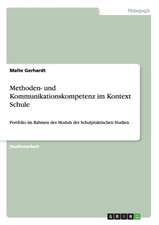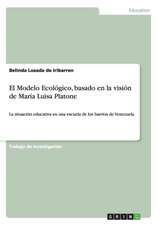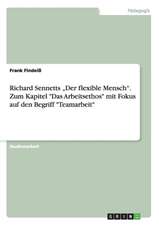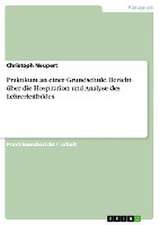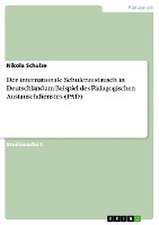The Kiss and the Ghost: Sylvia Ashton-Warner and New Zealand
Editat de Alison Jones, Sue Middletonen Limba Engleză Paperback – 31 mai 2009
| Toate formatele și edițiile | Preț | Express |
|---|---|---|
| Paperback (2) | 221.79 lei 43-57 zile | |
| NZCER Press – 31 mai 2009 | 221.79 lei 43-57 zile | |
| Brill – 31 dec 2008 | 235.37 lei 38-44 zile | |
| Hardback (1) | 566.86 lei 38-44 zile | |
| Sense Publishers – 8 mar 2009 | 566.86 lei 38-44 zile |
Preț: 221.79 lei
Nou
Puncte Express: 333
Preț estimativ în valută:
42.44€ • 44.42$ • 35.32£
42.44€ • 44.42$ • 35.32£
Carte tipărită la comandă
Livrare economică 31 martie-14 aprilie
Preluare comenzi: 021 569.72.76
Specificații
ISBN-13: 9781877398476
ISBN-10: 1877398470
Pagini: 220
Dimensiuni: 170 x 244 x 12 mm
Greutate: 0.36 kg
Editura: NZCER Press
Colecția NZCER Press
ISBN-10: 1877398470
Pagini: 220
Dimensiuni: 170 x 244 x 12 mm
Greutate: 0.36 kg
Editura: NZCER Press
Colecția NZCER Press
Descriere
Descriere de la o altă ediție sau format:
Sylvia Ashton-Warner, novelist and educationist, was extraordinarily famous in the 1960s. She maintained that young children best learn to read and write when they produce their own vocabulary, especially sex words—like ‘kiss’, and fear words—like ‘ghost’. Educators lauded her.
Her autobiographical novels about teaching in remote schools, and being culturally abandoned in a remote country, New Zealand, attained enormous international popularity in both literary and educational circles.
But she had an intensely ambivalent relationship with the land of her birth. Despite receiving many accolades in New Zealand, she claimed to have been rejected and persecuted by her homeland. In her darkest moments, she railed against New Zealand and New Zealanders, even stating in one television interview: “I’m not a New Zealander!”
This is the first book to make Sylvia Ashton-Warner’s passionately difficult relationship with New Zealand its central focus. Its contributors argue that, rather than stultifying her, the country she decried produced Sylvia and her work. In addition, infant schooling in New Zealand in the post-war years was relatively radical and progressive, and education officials seemed to welcome Sylvia’s ideas about literacy.
The edited collection includes chapters by Maori teachers and others who worked with Sylvia, as well as recollections of her son, Elliot Henderson. It reprints her Teaching Scheme that was originally published in New Zealand in the 1950s. And it celebrates her novels as brilliant and angry evocations of life in the wildness of New Zealand.
Sylvia Ashton-Warner, novelist and educationist, was extraordinarily famous in the 1960s. She maintained that young children best learn to read and write when they produce their own vocabulary, especially sex words—like ‘kiss’, and fear words—like ‘ghost’. Educators lauded her.
Her autobiographical novels about teaching in remote schools, and being culturally abandoned in a remote country, New Zealand, attained enormous international popularity in both literary and educational circles.
But she had an intensely ambivalent relationship with the land of her birth. Despite receiving many accolades in New Zealand, she claimed to have been rejected and persecuted by her homeland. In her darkest moments, she railed against New Zealand and New Zealanders, even stating in one television interview: “I’m not a New Zealander!”
This is the first book to make Sylvia Ashton-Warner’s passionately difficult relationship with New Zealand its central focus. Its contributors argue that, rather than stultifying her, the country she decried produced Sylvia and her work. In addition, infant schooling in New Zealand in the post-war years was relatively radical and progressive, and education officials seemed to welcome Sylvia’s ideas about literacy.
The edited collection includes chapters by Maori teachers and others who worked with Sylvia, as well as recollections of her son, Elliot Henderson. It reprints her Teaching Scheme that was originally published in New Zealand in the 1950s. And it celebrates her novels as brilliant and angry evocations of life in the wildness of New Zealand.
